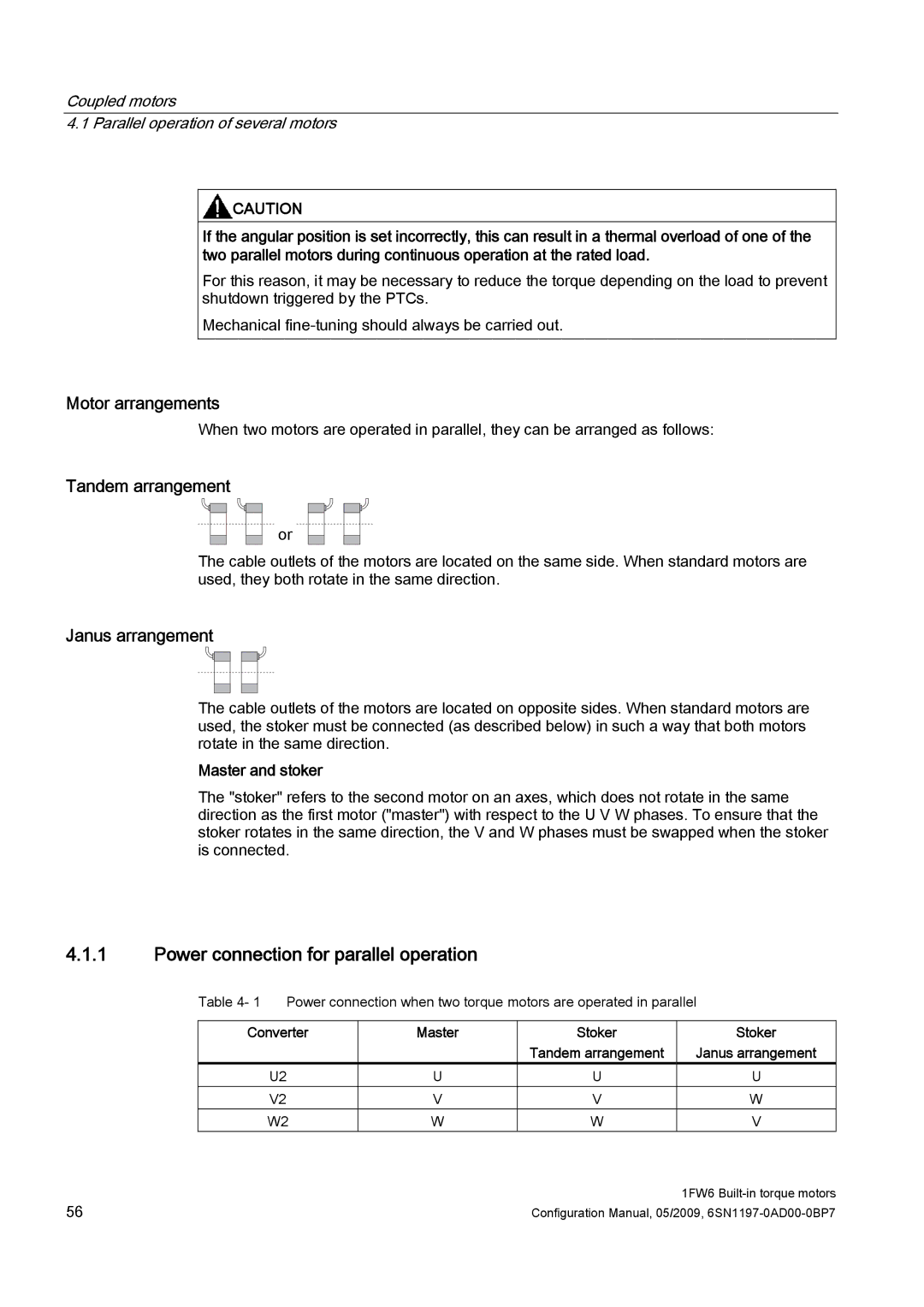
Coupled motors
4.1 Parallel operation of several motors
![]() CAUTION
CAUTION
If the angular position is set incorrectly, this can result in a thermal overload of one of the two parallel motors during continuous operation at the rated load.
For this reason, it may be necessary to reduce the torque depending on the load to prevent shutdown triggered by the PTCs.
Mechanical
Motor arrangements
When two motors are operated in parallel, they can be arranged as follows:
Tandem arrangement
or |
The cable outlets of the motors are located on the same side. When standard motors are used, they both rotate in the same direction.
Janus arrangement
The cable outlets of the motors are located on opposite sides. When standard motors are used, the stoker must be connected (as described below) in such a way that both motors rotate in the same direction.
Master and stoker
The "stoker" refers to the second motor on an axes, which does not rotate in the same direction as the first motor ("master") with respect to the U V W phases. To ensure that the stoker rotates in the same direction, the V and W phases must be swapped when the stoker is connected.
4.1.1Power connection for parallel operation
Table 4- 1 Power connection when two torque motors are operated in parallel
| Converter | Master | Stoker | Stoker |
|
|
| Tandem arrangement | Janus arrangement |
| U2 | U | U | U |
| V2 | V | V | W |
| W2 | W | W | V |
56 |
|
|
| 1FW6 |
|
| Configuration Manual, 05/2009, | ||
